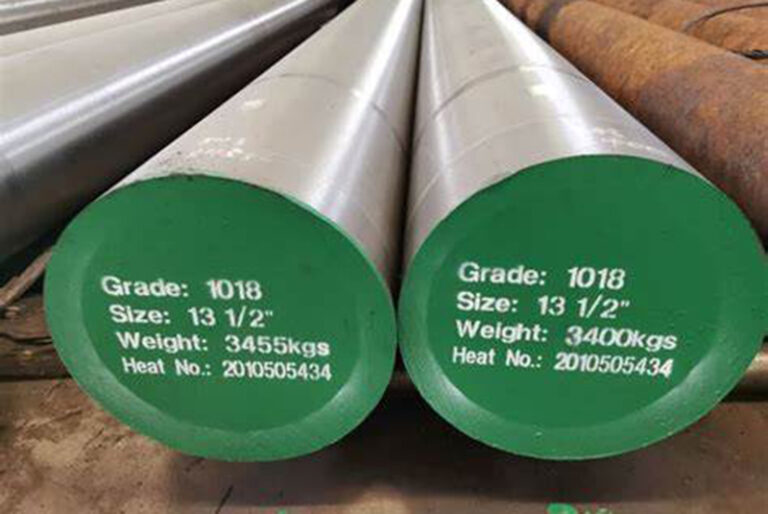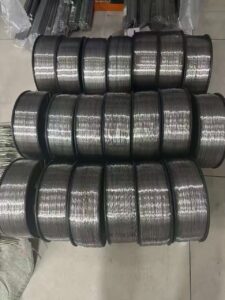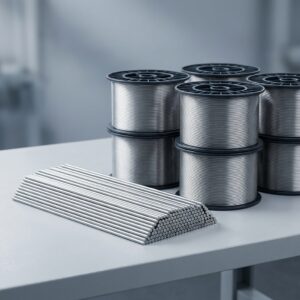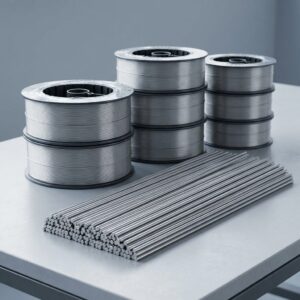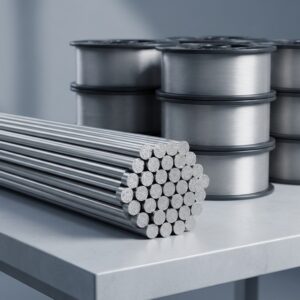Unveiling the Marvels of 1018/1.0401 Carbon Steel: A Comprehensive Exploration
Introduction
In the expansive realm of metallurgy, certain alloys emerge as exemplars of innovation and engineering prowess. Among these, 1018/1.0401 Carbon Steel shines brightly, esteemed for its versatility, machinability, and cost-effectiveness. Join us as we embark on an exploration to uncover the intricacies and advantages of this remarkable alloy, delving into its composition, properties, applications, suppliers, pricing, and expert insights.
Overview of 1018/1.0401 Carbon Steel
1018/1.0401 Carbon Steel belongs to the family of low-carbon steels, distinguished by their relatively low carbon content and excellent weldability. Let’s delve into the key details of this alloy:
Chemical Composition
| Element | Percentage |
|---|---|
| Carbon (C) | 0.15-0.20% |
| Manganese (Mn) | 0.60-0.90% |
| Phosphorus (P) | ≤ 0.040% |
| Sulfur (S) | ≤ 0.050% |
Mechanical Properties
- Tensile Strength: 370-440 MPa
- Yield Strength: 205-280 MPa
- Elongation: 15-20%
- Hardness (Brinell): 111-163 HB
Standards
- ASTM A108: Standard Specification for Steel Bar, Carbon and Alloy, Cold-Finished
Exploring the Features and Advantages
1018/1.0401 Carbon Steel boasts numerous features and advantages that make it a preferred choice in various applications:
Features
- Excellent weldability and formability
- Good machinability and workability
- Relatively low cost compared to other carbon steels
- Uniform grain structure and surface finish
- Suitable for cold forming and hot forging processes
Advantages
- Widely used in manufacturing components for automotive, construction, and machinery industries
- Offers good strength and ductility for general engineering applications
- Provides versatility in fabrication methods such as welding, machining, and heat treatment
- Ensures consistent performance in a wide range of operating conditions
- Available in various forms including bars, rods, sheets, and plates
Comparison Between 1018/1.0401 Carbon Steel and Competing Alloys
Let’s compare the advantages and disadvantages of 1018/1.0401 Carbon Steel with a competing alloy, 1045 Carbon Steel:
| Parameter | 1018/1.0401 Carbon Steel | 1045 Carbon Steel |
|---|---|---|
| Carbon Content | 0.15-0.20% | 0.43-0.50% |
| Manganese Content | 0.60-0.90% | 0.60-0.90% |
| Tensile Strength | Moderate | High |
| Ductility | Good | Moderate |
| Machinability | Excellent | Good |
| Cost | Low | Moderate |
Applications and Uses
From automotive parts to construction components, 1018/1.0401 Carbon Steel finds extensive utilization in various industries:
| Industry | Applications |
|---|---|
| Automotive | Shaft components, gears, bushings |
| Construction | Bolts, screws, brackets, structural beams |
| Machinery | Axles, couplings, hydraulic fittings |
Navigating Suppliers and Pricing
Sourcing 1018/1.0401 Carbon Steel requires careful consideration of reliable suppliers offering quality products at competitive prices:
| Supplier | Price Range (per kg) | Description/Notes |
|---|---|---|
| Ryerson | $1.50 – $3.00 | Leading distributor of carbon steel products catering to various industries. |
| Metal Supermarkets | $1.30 – $2.50 | Retail supplier offering a wide range of carbon steel products in various shapes and sizes. |
| OnlineMetals | $1.20 – $2.80 | Online retailer providing carbon steel bars, sheets, and other forms with convenient shipping. |
FAQs about 1018/1.0401 Carbon Steel
Q: What are the main advantages of using 1018/1.0401 Carbon Steel?
A: 1018/1.0401 Carbon Steel offers excellent weldability, formability, and machinability at a relatively low cost, making it ideal for various engineering applications.
Q: What are the common applications of 1018/1.0401 Carbon Steel?
A: It is commonly used in automotive shafts, construction bolts, and machinery components due to its versatility and affordability.
Q: Where can I buy 1018/1.0401 Carbon Steel?
A: You can source it from reputable suppliers such as Ryerson, Metal Supermarkets, OnlineMetals, and others.
Q: What specifications does 1018/1.0401 Carbon Steel conform to?
A: This carbon steel conforms to standards such as ASTM A108, ensuring compliance with industry quality requirements.

